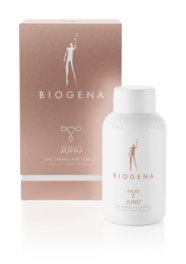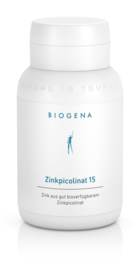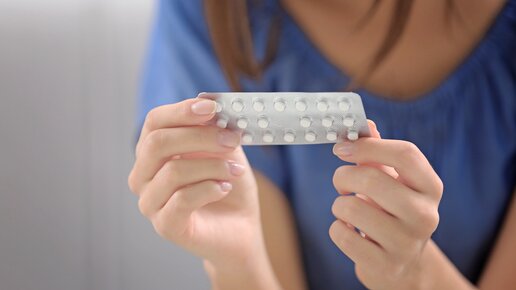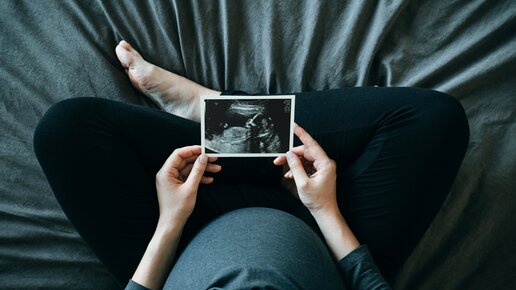The path to the child of your dreams is not always easy. In this article, the female cycle is explained in a comprehensible way and we examine various approaches that are based on scientific knowledge and can holistically promote fertility for women and men. We also give tips on becoming pregnant.
Why we should know about the female cycle
Over a long period of time, a woman’s life is shaped by her menstrual cycle. From puberty through to menopause, the monthly menstrual cycle takes place around 400 to 500 times.
A menstrual cycle is as individual as the woman herself. In order for an egg to mature, be fertilised and be implanted, the female sex hormones must be able to do what they want undisturbed. External as well as internal factors influence the sensitive hormone balance and thus also fertility.
Cycle awareness
Understanding your menstrual cycle and observing signs of fertility such as basal temperature and cervical mucus can increase the chances of pregnancy.
Here is a summary of the most important information on the cycle and the fertile days:
- The first day of bleeding is also the first day of the cycle.
- A cycle lasts an average of 28 days – but this is only the case in 10-15% of women. A cycle length of 24 to 38 days is typical for physiological reasons. In the case of cycle disorders, cycles are shorter or longer than this period, completely irregular or completely absent.
- In a regular cycle of 28 days, ovulation occurs on the 14th to 15th day. Fertility is highest on this day and the day before.
- However, sperm can survive 5 days beforehand and fertilisation can occur. After ovulation, the "fertile window" remains open for 24 hours.

Calculate fertile days: When can you become pregnant?
Important: For a shorter or longer cycle, days must be calculated in addition or subtracted.
This means that in a cycle of 30 days, ovulation will probably take place on the 14th+2 – thus the 16th – day of the cycle. Theoretically, the woman is fertile from day 11 onwards with the peak of fertility on the 16th day. Both day 17 and 18 can still lead to pregnancy.
For a shortened cycle, the days must be deducted. Your cycle lasts 25 days? Then ovulation is possible on the 11th day and the days before can also lead to pregnancy.
In the case of irregular cycles, the calculation is of course more difficult. Additional options for determining ovulation are cervical mucus assessment, morning temperature or an ovulation test. Fertility monitors can also support the evaluation of fertile days very well.
Signs of ovulation:
- Stringy, clear cervical mucus
- Basal temperature increases by 0.4 to 1.0°C (to experience the temperature curve, it must be measured daily before getting up, as soon as the temperature rises, this indicates ovulation)
- Ovulatory pain (pulling sensation in the abdomen)
Tips on how to get pregnant - prepare your nest
In order for the embryo to develop optimally from day 1 onwards, family planning should include topping up the vitamin, mineral and omega 3 supplies to prepare the body for a possible pregnancy.
Healthy diet - these foods offer support:
Fresh fruit and vegetables, high-quality pulses, nuts, whole grain products and lean protein sources form a healthy basis for a broad and good supply of micronutrients. Women who wish to fall pregnant should ensure a sufficient supply of nutrients, especially folic acid, the pregnancy vitamin. Special dietary supplements can strengthen the daily nutrient intake in times of increased demand.
The following nutrients support female fertility
- Folic acid: Prevents malformations (neuronal tube defects), supports cell division, contributes to the formation of red blood cells
- Zinc: Supports the maturation of eggs and regular ovulation, supports the immune system, protects cells from free radical damage
- Vitamin D: Regulates the hormones oestrogen and progesterone. Studies show that women with sufficient vitamin D levels achieve better results in fertility treatments (such as in vitro fertilisation (IVF)).
- Vitamin B6: Contributes to the regulation of hormone activity and supports the immune system
- Vitamin B12: Supports many functions in the body. The immune system, nerve health, protection against anaemia, as it is necessary for the maturation of blood cells. As this vitamin is found mainly in animal products, vegetarian or vegan women should be especially careful to ingest sufficient vitamin B12 and consider supplementing if necessary
- Antioxidants such as vitamin C, vitamin E and selenium: Can help protect the cells (ova) from oxidative stress
- Iodine: Contributes to normal thyroid function – a normally functioning thyroid is also essential for the female cycle
If you are pregnant, your body performs at its best to allow the new life to grow. Natural nutritional supplements are recommended so that mother and child are well cared for from the very beginning of the pregnancy. What do I need to pay attention to and from when should I supplement?
Home remedies & alternative support for fertility
Our ancestors dealt with the topic of fertility early on – they practised fertility rites and used selected herbs that promised increased fertility.
If you would like to support your family planning with herbal home remedies as well, it is best to seek advice from an experienced phytotherapeutically trained doctor or therapist. In addition to the traditional European plants, traditional Chinese plant history and Ayurveda also offer plant-based options.
In addition, various alternatives can have a supportive effect if you wish to have children. These include acupuncture, which is intended to regulate the hormone balance and improve blood flow to the uterus, as well as herbal preparations such as monk’s pepper, which promotes cycle regulation.
A study on the effect of acupuncture on falling pregnant shows that acupuncture can support fertility by various mechanisms (Smith, et al., 2015)
Using relaxation techniques such as yoga and meditation can also help to relieve stress and increase fertility.
Fertility is also a topic for men: Fit sperm reach their destination
20 centimetres and yet a race like no other. This is the distance that sperm have to bridge to reach the object of their desire – the egg.
Here, the probability of a sperm cell emerging as the victor of the competition and bearing witness to new life is negligible – namely less than 1:500,000,000. Therefore, for couples who wish to have children, the following applies: the more sperm that enter the race and the healthier they are, the more likely it is that the happiness of a family will be realised.
Sperm quality also decides whether the wish to have children is fulfilled.
What influences sperm quality?
The following factors negatively affect the quality of sperm:
- Lifestyle factors: Smoking, alcohol, drugs, anabolics, fast food, overweight, stress, medications
- Environmental factors: Environmental toxins such as heavy metals, pesticides
- Other factors: Age, hormonal disorders, infections, testicular overheating, genetic factors
The following factors positively influence sperm quality:
A healthy lifestyle can have a positive effect on sperm quality.
This includes regular physical activity, good stress management, sufficient sleep and abstinence from smoking and excessive alcohol consumption. A balanced diet rich in vital substances is a step in the right direction. In order to produce healthy sperm, the body needs certain micronutrients in sufficient quantities:
In addition to vitamin B6, which supports the regulation of hormone activity, and selenium, which is involved in sperm production, the trace element zinc also plays an important role in fertility and reproduction. The "men's mineral" is not only relevant for maintaining the normal testosterone gel in the blood, it also has a part to play in cell division. The correct copying and packing of the genetic code during sperm production is a decisive factor for the lifespan and "marksmanship" of a sperm. Like selenium, zinc also protects cells from oxidative stress.
Important: The result of changes in lifestyle habits is evident at the earliest after about three months. Therefore, a permanent change of habits should be sought.
This influences the fertility of men and women
Normal weight as the ideal basis
Being severely overweight or underweight can have a negative effect on fertility. Overweight women can suffer from cycle disorders due to hormonal imbalances, while underweight women may experience a lack of ovulation and menstrual bleeding. Men are also advised to normalise their body weight, because too much or too little on the male ribs can increase the risk of impaired testicular function and reduced sperm formation.
Exercise has a positive effect on fertility
Those who lead an active life with sufficient exercise score not only with greater endurance, but also promote their own fertility. In both women and men, regular exercise supports the circulation, weight control and the hormone balance.
In men, exercise can also stabilise testosterone levels.
No stress!
Internal stress often begins with the first thought of becoming pregnant. Expectations and the pressure to succeed make sex a compulsory exercise. However, stress has a negative impact on the ability of the body to conceive. The fact that about a third of couples need more than a year to fall pregnant may well take a little wind out of your sails. So reduce your stress level and take time for more relaxation (such as walking, yoga or massage).
Sufficient & regular sleep
Studies show that sleep deficits stress our body and can prove a barrier to couples falling pregnant. Night shifts are particularly bad, as they can disrupt the hormone balance of both sexes. The optimal sleep duration is seven to eight hours a day – ideally in harmony with your internal body clock and thus the hormonal cycle. If possible, try to go to bed at the same time each night.
Other botanicals
Maca root (Lepidium meyenii) and Ashwagandha (Withania somnifera) are two plants traditionally used to increase fertility.
Studies indicate that maca root can improve sperm quality and quantity in men, while it can balance out hormone imbalances in women. In women and men, taking Maca also positively influences the libido.
Ashwagandha, also known as Indian ginseng, is known for its adaptogenic properties that help counteract stress – an important factor in fertility.
It is also assumed that Ashwagandha increases testosterone production and sperm quality in men and promotes hormonal balance in women.
When should a doctor be consulted about fertility?
- If couples are unable to fall pregnant for a period of one year (in women under the age of 35) or six months (in women over the age of 35) despite regular unprotected sexual intercourse.
- If there are signs of possible fertility problems such as irregular or absent menstruation.
- After previous surgical procedures that could affect the reproductive organs.
- For known diseases such as endometriosis or PCOS (polycystic ovarian syndrome).
- After a history of sexually transmitted infections that could affect fertility.
Frequently asked questions about fertility & becoming pregnant
A woman is fertile during the ovulation phase of her menstrual cycle, especially on the five days before and day of ovulation. These days are referred to as fertile days, since the probability of fertilisation is highest during this period. With a regular cycle of 28 days, ovulation is expected to take place on the 14th day.
The fertile days are usually in the middle of the cycle, about 12 to 16 days before the start of the next menstruation. This means that the most fertile time in a 28-day cycle begins approximately 12 to 16 days after the first day of the last period.
Yes, a woman can become pregnant after ovulation, but only within a short time window of about 12 to 24 hours, since the egg is only capable of fertilisation for so long. The probability of fertilisation then decreases rapidly.
The likelihood of becoming pregnant varies depending on the age and health of the woman and the quality of the sperm. In healthy couples, the probability per cycle is approximately 20-25% if they have sexual intercourse regularly during the fertile days.
There are many possible reasons why pregnancy does not happen. Hormonal disorders, problems with the fallopian tubes, endometriosis or low sperm quality may present obstacles. Stress, overweight or underweight and lifestyle habits such as smoking and alcohol can also impair fertility. A medical examination can help to identify the causes and then appropriate measure can be taken.
It may take different lengths of time for a woman to become pregnant. In most couples, pregnancy occurs within one year with regular unprotected sexual intercourse. If no pregnancy has occurred after one year, it is recommended to consult a doctor.
There are various ways to promote fertility. A balanced diet, regular physical activity and a healthy lifestyle are fundamental factors. Food supplements such as folic acid, vitamin D and omega 3 fatty acids can also help. Avoiding stress and maintaining a normal weight also play an important role.










